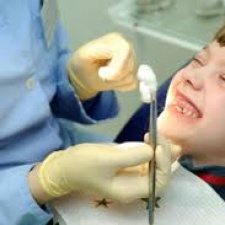
Basmal Ria and Emma Wates both studied dentistry at Kings College London and qualified July 2014. They wrote this article in the hope that their experiences so far in DFT could help future DFTs understand what to expect in their year to come.
The Article includes an introduction on what to expect during your DFT year and the differences between DFT placements in and out on London. The article also includes tips on MJDF, audits and DCT applications as well as budgeting.
Introduction
During our final year of study at King's College London University we had the opportunity to work in a range of different hospitals including King's College Hospital, Guy's Hospital, St Thomas' Hospital and Portsmouth Dental Academy; the latter which we were posted for one week every month. As such we have learnt to easily adapt to different clinical environments and different clinical situations and welcome change and the opportunity to work with an open mind to change along differing team members. Upon beginning our DFT year we found the transition from a protected hospital teaching setting to a practice setting initially a trial; one we welcomed with anticipation.
Induction to DF1
The induction to Dental Foundation Training proved to be the foundation upon which this year would progress. This included introduction to all the dental team members; we were fortunate enough to work alongside for the year to come!
Differences between completing Dental Foundation year 1 in London vs outside of London
Living in London, as many who have will vouch, has its advantages and disadvantages; the former namely the plethora of networking, convenience of travel and of course city life! The latter, however, the hustle and bustle that often comes with city life. As a trainee and current Londoner I am grateful to London and all it has to offer, both academically and socially.
The first 3 months of DF1
Embarking on our Dental Foundation Training journey has so far been an interesting and challenging experience at times. During the first month of Dental Foundation Training getting used to the transition from university to a practice setting can be fiddly at first, particularly with the array of rules and regulations under the NHS. Knowing which treatment bands and claims to send off, whether a particular patient is exempt, paperwork including FP17DC's and PR (Patient record) forms comes at you all at once. Then you have the trial of juggling a patient range you are unfamiliar with, one of the most rewarding encounters in our opinions. Other hurdles included familiarisation with the NHS banding system, target UDA's, accustoming to the different local community and hospital referral systems.
The second 3 months of DF1
Towards the middle of your Dental Foundation Training year you might expect different hurdles; ones we currently face include: ensuring increasing experience in bridge and CoCr denture work as well as a focus on speed and reaching UDA targets. This was a common hurdle many of our peers also faced, one we're sure we will continue to face during subsequent years, particularly UDA targets!
As a dental Trainee working in a dental practice within a hospital Basmal has been fortunate to, on occasion, liaise with the Oral and Maxillofacial Surgery team which has fuelled her interest in the field and steered her towards applying for DCT.
During your Dental Foundation Training year it is important to be aware of deadlines such as DCT applications, MJDF, and interview acceptance.
Budgeting
It is important to remember to save up to pay for the GDC annual retention fee and the MJDF part one. This year we had to pay £980 to the GDC in December. It is important to remember to claim some of this money back at the end of the tax year or to get in touch with HMRC early to increase your tax code.
Audits
Clinical audits are a great method of improving quality of patient care. It is important for Dental Foundation year 1s to get involved in carrying out clinical audits within their practices as this is a requirement for completing DF1 and it is good to add to DCT1 application forms and CVs.
MJDF Part 1
MJDF part 1 can be taken in October or March each year. The cost of the exam this year was £522. It is a good idea to complete MJDF Part 1 as soon as possible as it is good to put it on DCT1 application forms and your CV. MJDF part 1 is a 3 hour MCQ exam comprising of both EMQs and SBAs.
DCT1 application process
The DCT1 applications this year were regional applications. The applications were organised via the oriel NHS and NHS jobs websites. The applications opened in January-February and closed in March but some of the applications are earlier/later. Most of the interviews are carried out in April.
- Dr Basmal Ria, BDS (Lond)
- Dr Emma Wates, BDS (Lond)